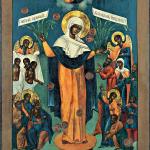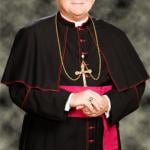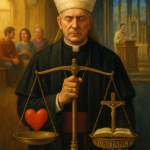Vatican City, Jan 17, 2017 / 12:46 pm (CNA/EWTN News).- In reaction to a new book claiming that Pope Francis has in fact done little to combat clerical sex abuse, and that Cardinal George Pell is implicated, the Australian cardinal's office has dismissed the claims as motivated by opposition to reform. “These most recent attacks on the Vatican, economic reforms and Cardinal George Pell are not only regurgitating false claims but appear to have a more sinister intent,” read a Jan. 15 statement from the office of Cardinal Pell, prefect of the Secretariat for the Economy. “Those opposed to the reforms and threatened by the progress in establishing transparency and addressing illegalities and malpractice have long used lies, smears and public attacks as diversionary tactics.” A new book by Italian journalist Emiliano Fittipaldi called Lussaria, or “Lust”, details claims that under Pope Francis, the Vatican has failed to adequately address sex abuse committed by clerics. The book will be release in Italian on Thursday.According to the Guardian, “In some of the twenty cases of alleged sexual abuse by priests in Italy in 2016, Fittipaldi writes, priests have been convicted of abuse without the church taking any canonical action against them.”The Washington Post writes that Fittipaldi “claims to have unearthed documents showing Pell also sought to financially aid priests who had been jailed on pedophilia charges.” Cardinal Pell, 75, has already faced allegations from investigators that while in Australia he had been negligent when informed of child sexual abuse, bribed a victim, moved a known abuser from parish to parish, and had himself committed sexual abuse of minors. The cardinal has adamantly denied committing sexual abuse and covering up the abuse of other priests, but he has expressed regret for failing to take more action against abusive priests in the 1970s and '80s. He was a bishop in Australia from 1987 until 2014, when he was called to Rome to head up Pope Francis' efforts at reforming Vatican finances. These efforts have met some resistance. The statement issued by Cardinal Pell's office characterized Fittipaldi's claims as an instance of this resistance: “As the full impact of the Holy Father's economic reforms now start to bite, articles seeking to discredit the Holy Father and those leading the reforms are unfortunately, to be expected. They should be recognised for such.” It called Fittipaldi's work “a particularly shoddy and dated piece which merely restates false allegations against the Cardinal in a blatant attempt to blacken his name and reputation.” “These matters have already been thoroughly reviewed by relevant civil authorities and it is clear from the detailed analysis that Cardinal Pell has never been a party to cover ups and protection of pedophiles and other offenders,” the statement continued. “There have been no adverse findings against Cardinal Pell by the Royal Commission in Australia in regards to these matters.” It added that “Cardinal Pell was among the first leaders in the Church to confront this evil and take tangible steps to assist to survivors. His commitment to supporting survivors and ensuring safe and proper protocols are in place remains firm.” “The ongoing reporting of false allegations to underscore ulterior motives is not only harmful to the Church but survivors as well,” the statement concluded. Fittipaldi has previously run afoul of Vatican officials. Another of his books was a subject of the “Vatileaks 2” trial held last year. Vatican City held an eight-month trial weighing the guilt of five individuals in the leaking and disseminating of confidential financial documents, sentencing a Vatican official and a laywoman for the crime. The journalists charged in the trial were Fittipaldi and Gianluigi Nuzzi. It was ruled that the journalists could not be indicted, since what they were accused of – exerting pressure on Vatican officials to obtain private documents for them – falls outside Vatican City jurisdiction. Among the cases detailed in Lussaria is that of Fr. Mauro Inzoli, who was found guilty of child sex abuse by the Congregation for the Doctrine of the Faith, and laicized in 2012. But in 2014 he was allowed to again exercise his priesthood, albeit under the conditions of “a life of prayer and humble discretion.” In 2016, Fr. Inzoli was convicted on eight counts of abuse by Italian civil authorities. Read more
















